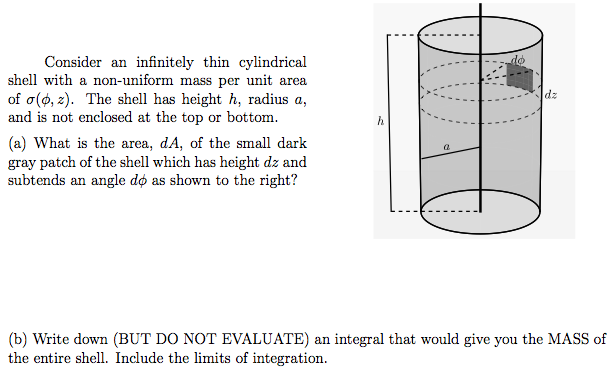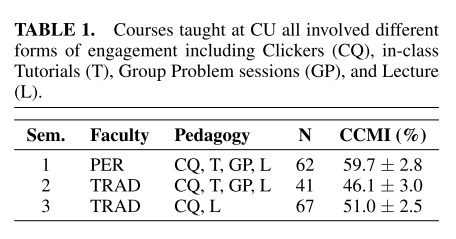Developed by Rachel Pepper, Steven Pollock, Danny Caballero, and Leanne Doughty
| Purpose |
To assess skills such as visualizing a problem, correctly applying problem-solving methods, connecting math to physics, and describing limiting behavior in first semester Classical Mechanics courses.
|
|---|---|
| Format | Pre/post, Short answer |
| Duration | Pre: 20 min; Post: 50 min |
| Focus | Mechanics Content knowledge (ordinary differential equations, Taylor series, potential energy, simple harmonic motion, Newton's laws) |
| Level | Upper-level, Intermediate |
Sample question from the CCMI:
CCMI Implementation and Troubleshooting Guide
Everything you need to know about implementing the CCMI in your class.
Login or register to download the implementation guide.
Multiple-response versions of both pre- and post-tests are under development, with a beta version implemented on Qualtrics. Contact Steven.Pollock (at) Colorado.edu if you would like to try this in your class.
The Colorado Science Education (SEI) Initiative has developed a wide range of curricular materials for teaching sophomore-level Classical Mechanics/Math Methods, of which the CCMI is only one. Please visit the course website for other materials such as group activities, clicker questions, and homework.
more details
This is the second highest level of research validation, corresponding to at least 5 of the validation categories below.
Research Validation Summary
Based on Research Into:
- Student thinking
Studied Using:
- Student interviews
- Expert review
- Appropriate statistical analysis
Research Conducted:
- At multiple institutions
- By multiple research groups
- Peer-reviewed publication
The open-ended questions on the CCMI were developed based on a set of learning goals produced by faculty. The initial set of learning goals were revised based on course materials, and reviewed by faculty again. Questions were written covering each goal, with some questions coming from clicker questions used in class, and all based on observed student difficulties with relevant material. Many faculty reviewed the CCMI questions and student responses, and the questions were further revised. Fourteen students participated in think-aloud interviews while solving CCMI questions, and the questions were again revised. Average course exam scores were found to be strongly correlated with CCMI scores. Appropriate statistical analyses of item-item correlation and internal consistency were conducted, and reasonable values found. The CCMI has been given to over 150 students and results published in two peer-reviewed publications.
References
- M. Caballero, L. Doughty, A. Turnbull, R. Pepper, and S. Pollock, Assessing learning outcomes in middle-division classical mechanics: The Colorado Classical Mechanics and Math Methods Instrument, Phys. Rev. Phys. Educ. Res. 13 (1), 010118 (2017).
- M. Caballero and S. Pollock, Assessing Student Learning in Middle-Division Classical Mechanics/Math Methods, presented at the Physics Education Research Conference 2013, Portland, OR, 2013.
- S. Pollock, R. Pepper, and A. Marino, Issues and Progress in Transforming a Middle-division Classical Mechanics/Math Methods Course, presented at the Physics Education Research Conference 2011, Omaha, Nebraska, 2011.
- B. Wilcox, M. Caballero, C. Baily, H. Sadaghiani, S. Chasteen, Q. Ryan, and S. Pollock, Development and uses of upper-division conceptual assessments, Phys. Rev. ST Phys. Educ. Res. 11 (2), 020115 (2015).
We don't have any translations of this assessment yet.
If you know of a translation that we don't have yet, or if you would like to translate this assessment, please contact us!

Login or register to download an excel scoring and analysis tool for this assessment.
| Typical Results |
|---|
Typical results on the CCMI from (Caballero and Pollock, 2014)
|
The latest version of the CCMI, released in 2013, is version 3.




